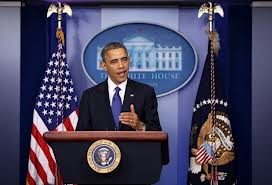
The 60-day delay of so-called “sequester” spending cuts, holds-off on $100 billion in military and domestic expense cuts that were set to happen in 2013 until a new proposal can be agreed upon.
The bill provides for a one-year extension of extended unemployment insurance benefits and a one-year extension of the Food, Conservation and Energy Act of 2008 (also called the “farm bill”).
Per the passed Senate bill, taxes on the wealthiest Americans, now defined at annual incomes in excess of $450,000 for joint-filing families and $400,000 on individuals, will increase to 39.6 percent from the current rate of 35 percent. In short, if the bill makes it through to law, a single person making $400,000 used to pay $140,000 in taxes; now that person will be paying $158,400.
Amongst other things, capital gains taxes for households making more than $450,000 annually with rise to 20 percent from 15 percent. Without the deal, the post-fiscal cliff rate would have risen to 23.8 percent.
Tax rates for incomes below $450,000 will not change from current levels.
The deal passed in a Senate vote 89 to 8.
“Tonight’s agreement ensures that, going forward, we will continue to reduce the deficit through a combination of new spending cuts and new revenues from the wealthiest Americans,” the White House said in a statement shortly after the bill passed the Senate.
The debt ceiling was not addressed and a 2 percent payroll tax cut will lapse as part of the initial agreement. Treasury Secretary Timothy Geithner has said that the U.S. will hit the $16.4 trillion debt ceiling in about two months at the current pace and would have instantly hit it upon falling over the fiscal cliff unless he took “extraordinary” measures to prevent it. On Monday, Geithner suspended investment in the Civil Service Retirement and Disability Fund to assist the country in not hitting the debt limit immediately. Even without deals addressing the fiscal cliff, the U.S. shouldn’t hit the borrowing limit until late in February at the earliest with the suspended investment.
The debt ceiling has been a leveraged tool in negotiations between Republicans and Democrats regarding new legislation. President Obama has asked for the authority to increase the debt ceiling at his discretion, a request that was instantly crushed by Republicans. The House has used offered to agree to raise the borrowing limit only if their spending cut demands are met.
Kentucky Senator Rand Paul was one of the eight that voted against the deal and Senate Minority Leader Mitch McConnell – also from Kentucky – said it isn’t a perfect situation, but it at least staves-off the massive tax increases for constituents.
The House of Representatives reconvenes at 12 PM ET today to review, possibly amend and vote on the proposal. President Barrack Obama said that the House needs to recognize that the deal is in the best interest of Americans and should “pass it without delay.”
The markets are closed to celebrate New Year’s Day on Tuesday. On Monday, equities were trading lower until investors sensed that a deal was going to get done and Geithner was going to make a move to avert the U.S. whacking its head on the debt ceiling, causing a stark reversal in trading to end a five-day losing streak. At the closing bell on Monday, the Dow Jones Industrial Average climbed 166.03 points (1.28%), the broader S&P 500 surged 23.76 points (1.69%) and the tech-rich Nasdaq galloped ahead by 59.20 points (2.00%).



















 According to the International Diabetes Federation, more than 500 million people will be diagnosed with diabetes in the next two decades, a more than 50 percent increase from today. Technologies are available presently to help manage the frequency, complications and costs associated with diabetes. Read the
According to the International Diabetes Federation, more than 500 million people will be diagnosed with diabetes in the next two decades, a more than 50 percent increase from today. Technologies are available presently to help manage the frequency, complications and costs associated with diabetes. Read the 





0 comments
Add your comment
Commenting is allowed only for registered users.